Sustainability
Sustainability

HIV SUSTAINABILITY AGENDA AND PROGRESS
Sustainability of the National HIV/AIDS Response
In the past 40 years since the identification of the first HIV case, the government of Nigeria has been enacting legal frameworks, policies, or regulations that facilitate access to HIV and related services. The NGO-led Implementation with Donor-dominant funding was adopted as the emergency response strategy for scaling up HIV prevention and treatment services to reach persons at risk of being infected with HIV and persons living with HIV. With this arrangement, the National HIV/AIDS Response is close to achieving the 95-95-95 targets across all populations of interest however with projected changes in donor architecture, Nigeria like many countries is shifting towards more sustainable strategies and approaches in the HIV/AIDS response.
The vision for a sustainable HIV response is a country response to HIV where government takes full control of the management (the New Business Model) and dominant resourcing of implementation with donor partners through implementing partners (IPs) technically support country structures through further capacitation and the facilitation of solutions to sectoral challenges.
Nigeria has chosen two main phases in the country’s roadmap to sustainability:
Phase A: Programmatic restructuring (The New Business Model).
Phase B: Financial restructuring (Sustainable HIV Response).
The expectation is that Nigeria will transit from a verticalized HIV response to a response that is situated and integrated within country structures with strong systems that provide holistic, integrated, client-centered and easily accessible care, giving attention to comorbidities and other social needs of those accessing HIV services.
To achieve a sustainable HIV/AIDS response, the National Agency for the Control of AIDS is committed to ensuring active engagement of country stakeholders throughout the process of articulating and implementing the transition towards a sustainable HIV response. In this regard, a series of engagements have commenced with implementing partners, a wide range of civil society organizations and the states.
A. Stakeholder Sensitization on the New Business Model (NBM)
- 20th November 2023
Global Fund Grant Cycle 7 Onboarding meeting with staff of the State AIDS Control Agencies of the 36 states and FCT and the SAPCs of the State AIDS/STIs Control Programme. Beyond preparing the states for the implementation of the grant, the meeting was an opportunity to present and discuss the sustainability agenda with the NBM as the pathway.
- 6th February 2024
Government stakeholders meeting on service integration for a sustainable HIV/AIDS response.
(The meeting had in attendance representatives from CESACAF, State Commissioners of Health Forum, National Primary Health Care Development Agency, Department of Hospital services/FMOH, Department of Reproductive Health Services/FMOH, Department of Public Health and the National AIDS and STI Control Programme).
The meeting provided a crucial opportunity for constructive dialogue and establishing a shared vision for the future of Nigeria’s HIV response. Discussions center on the need to optimize the use of available resources and enhance collaboration between various stakeholders to achieve better results in the fight against HIV/AIDS.
- 20th February 2024
Stakeholder Meeting on the Sustainability of the HIV Response
(The meeting had in attendance, representatives from National Human Rights Commission (NHRC), PEPFAR Coordination Office and her Agencies, IHVN, AHF, NHRC, ASWHAN, APYIN)
The primary aim of the meeting was to present the sustainability of the national HIV Response. Discussions centered on the unique role each stakeholder would play towards the success of the country’s initiative and the need for country ownership and accountability.
- 29th April 2024
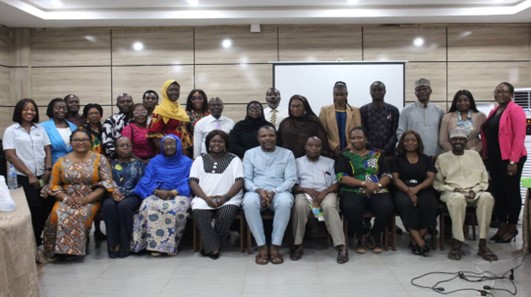
Participants at the NACA Biannual Coordination Meeting with MDAs and CCEs. This meeting was to review efforts towards the last mile to end AIDS by 2030, expected roles, responsibilities and sectoral strategic engagements. The platform provided an opportunity to present the National HIV Sustainability agenda and galvanize stakeholders’ perspective to achieving the agenda.
- 15th July 2024
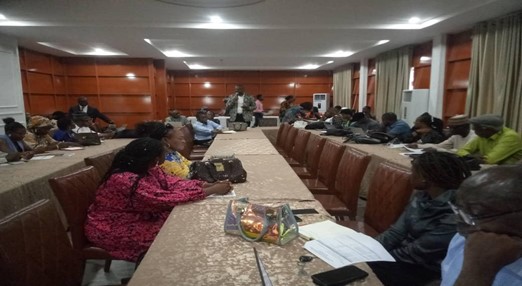
Annual Retreat towards strengthening collaboration with the Coalition of Civil Society Networks on HIV/AIDS in Nigeria, (CoCSHNHAN). The meeting reviewed the existing structure of CSOs in Nigeria, built consensus on the effective participation of CSOs for HIV sustainability and agreed on the roadmap to CSOs capacity strengthening.
- 10th October 2024
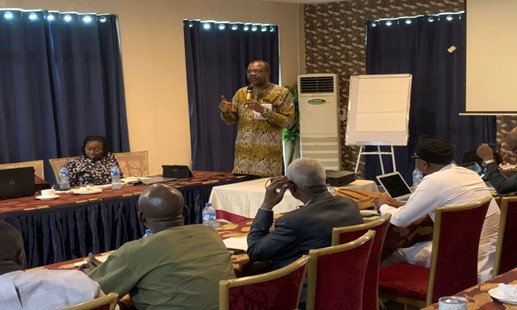
NiFCOB-AIDS TWG and Council of Secretaries Meeting with NACA. The engagement provided an opportunity to enhance collaboration between the Government, FBOs TWG and Council of Secretaries for effective coordination and reporting. At the end of this meeting, the capacity of NiFCOB-AIDS TWG and Council of Secretaries members was strengthened to advance strategic advocacy, resource mobilization and HIV Sustainability.
B. National Engagement on Nigeria’s HIV sustainability roadmap
The development of the National HIV Sustainability Roadmap Part A: The New Business Model is facilitated by a technical sustainability team with membership from the National Agency for the Control of AIDS (NACA), the National AIDS and STI Control Programme (NASCP), the country’s PEPFAR Coordination Office, United States Agency for International Development (USAID), U.S. Centers for Disease Control and Prevention (CDC), Walter Reed Army Institute of Research (WRAIR), Global Fund Country Coordinating Mechanism (GF CCM), the Institute of Human Virology Nigeria (IHVN), the Network of People Living with HIV/AIDS in Nigeria (NEPWHAN) and the National Key Population Secretariat (NKPH&RN). The team provides country level guidance to the processes required by stakeholders to achieve the sustainability of the HIV response. In building up to the development of the country’s sustainability roadmap, a series of engagements with stakeholders at the national level was facilitated by the team.
- 8th October 2024
Meeting with Implementing Partners (IPs).
The meeting had participation of the CEOs, COO and Technical Leads of Implementing Partners supporting HIV/AIDS interventions in Nigeria (IHVN, PHIS3, ECEWS, CCFN, ARFH, AFROCAB, APIN, PACT, HSCL, HALG, CIHP, AHNI, GGHN, JHPIEGO, CRS, CARITAS, SFH, PALLADIUM, HIFASS, CCCRN, and PHI).
During the engagement, IP leads were introduced to the national sustainability roadmap vision and plans and the potential elements for the sustainability assessment toolkit.
Participants emphasized the need for political engagement at the state level, advocated for the integration of HIV services within broader health systems and the strengthening governance structures for accountability.
- 14th – 15th and 18th – 19th October 2024
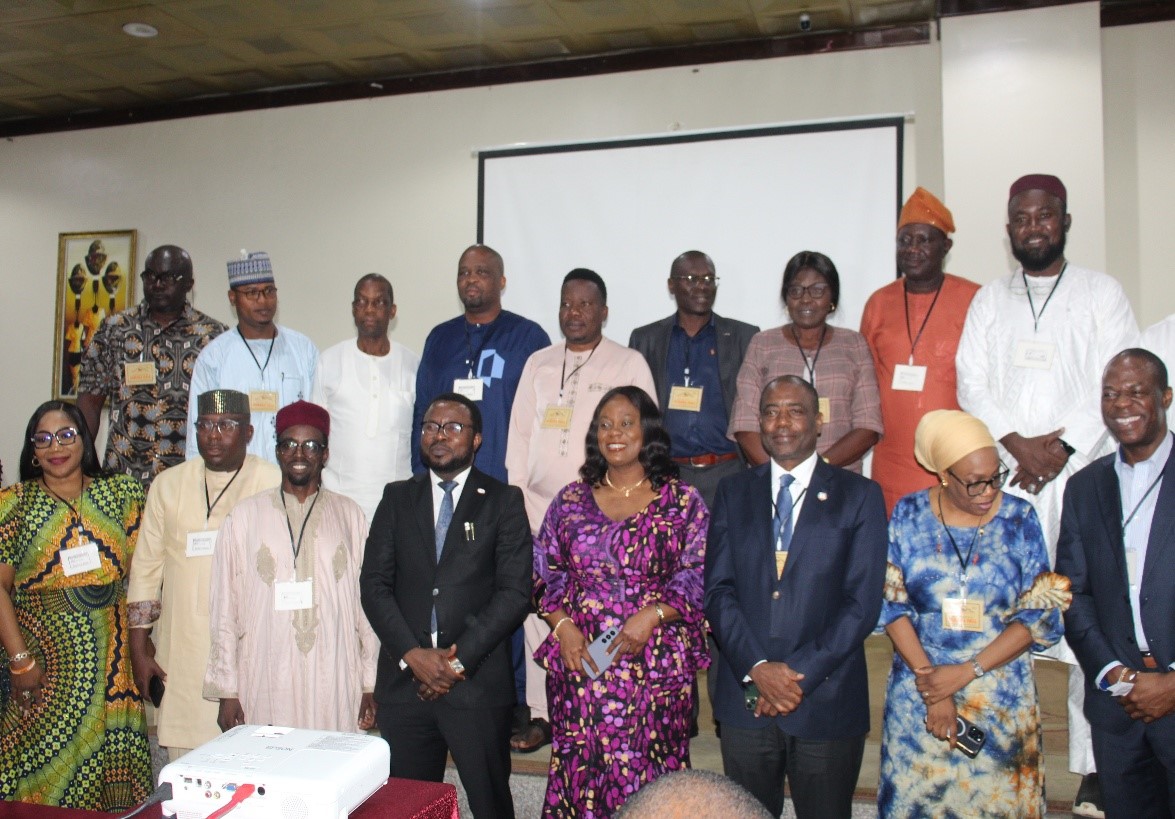
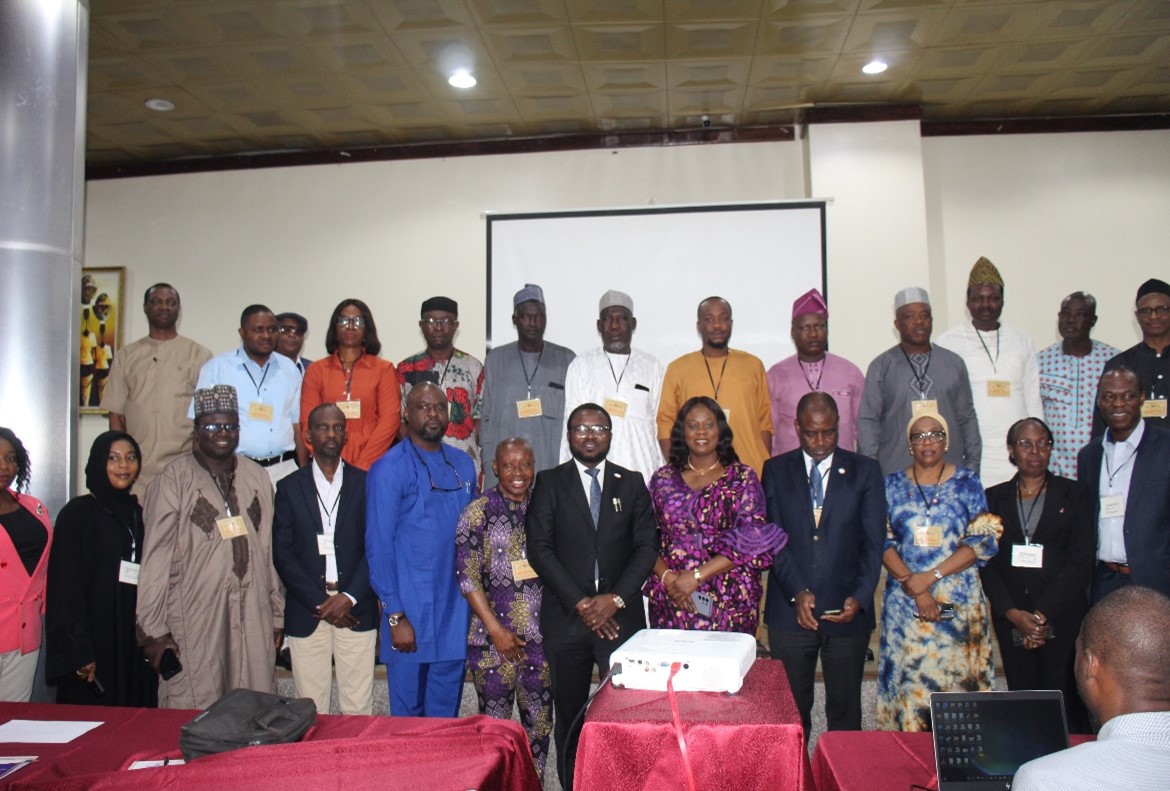
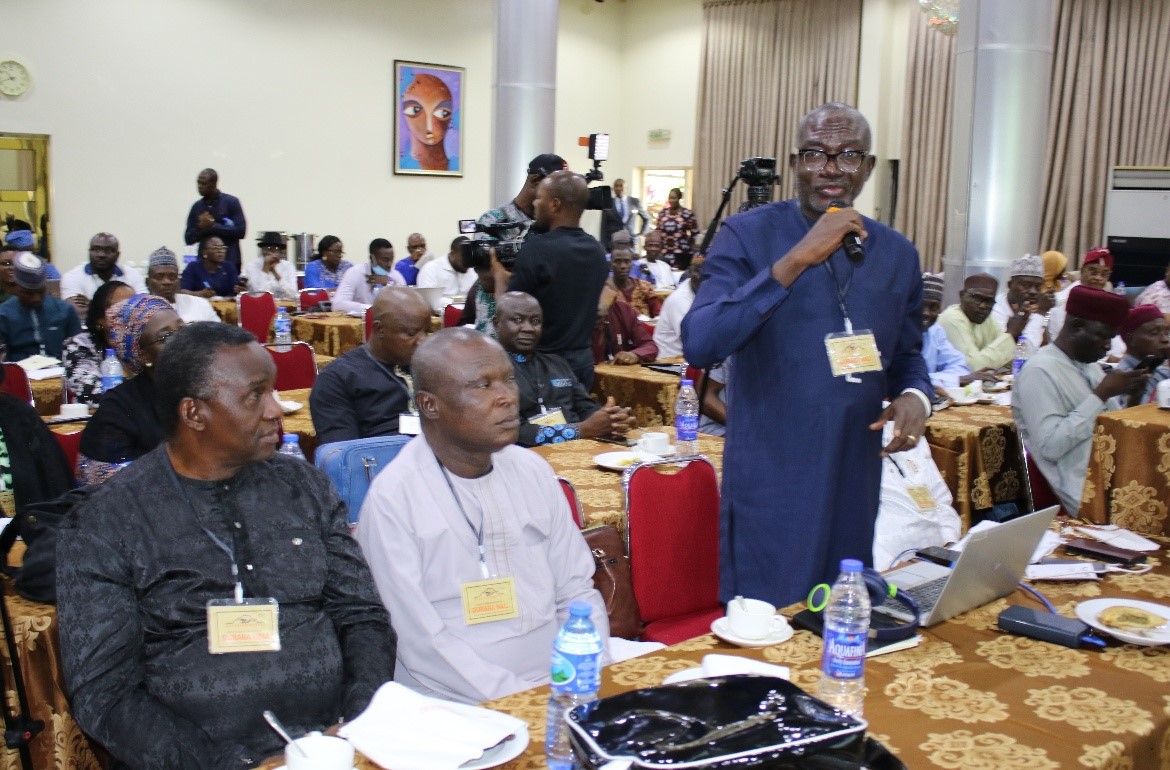
The National – State Meeting
The meeting with state government participants was held in two batches and each state had in attendance, the Director General/Executive Secretary of the State AIDS Control Agencies, The Executive Secretaries of the Hospital Management Boards, the Director of Public Health of the State Ministries of Health and the State AIDS Programme Coordinators of the State AIDS and STI Control Programme.
The engagement was designed to introduce the State Public Health leads to the national sustainability roadmap vision and plans, the projections for the state assessment toolkit and provide guidance for state-level engagements. Discussions centered on the need for political and financial commitments at the state and federal levels, importance of transparency in resource management, and the need for state level engagements. Some state participants shared efforts to sustain the response in their respective states
- 24th October 2024
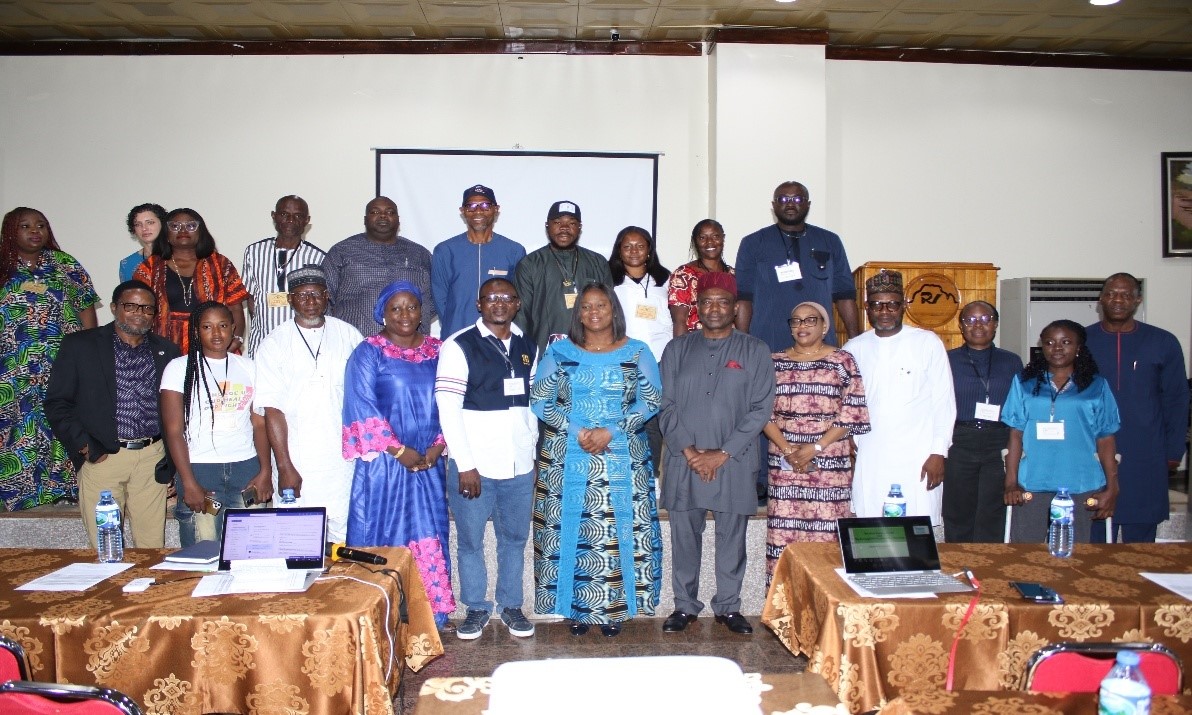
CSO Meeting National
The meeting with the Civil Society Organizations (CSOs), had in attendance representatives from the Network of People Living with HIV and AIDS in Nigeria (NEPWHAN), Association of Positive Youths in Nigeria (APYIN), Association of Women Living with HIV/AIDS in Nigeria (ASWHAN), Nigerian Network of Religious Leaders Living with or Personally Affected by HIV/AIDS (NINARELA), Association of Missionaries and Bible Agencies (AMBA), Civil Society for HIV/AIDS in Nigeria (CISHAN), Society for Women and Children Living with HIV/AIDS in Nigeria (SOWCHAN), National Youth Network on HIV/AIDS (NYNETHA), Nigeria Key Population Health Right Network, persons with disabilities, and the Community of Journalists.
The CSOs and community leaders were oriented on plans, processes and expected outcomes of the NBM and the HIV Sustainability Roadmap development process. Participants were encouraged to participate in national and sub-national engagement processes for the planning, implementation and monitoring of the sustainability roadmap. As part of the next steps at the meeting, participants will commence action towards the articulation of a CSO recommendation paper for the sustainability of the HIV response.
Up and coming features
C. The National (Nigeria) HIV Sustainability Roadmap Part A: The New Business Model
D. State Engagement on Nigeria’s HIV sustainability roadmap
E. Sustainability Assessment
